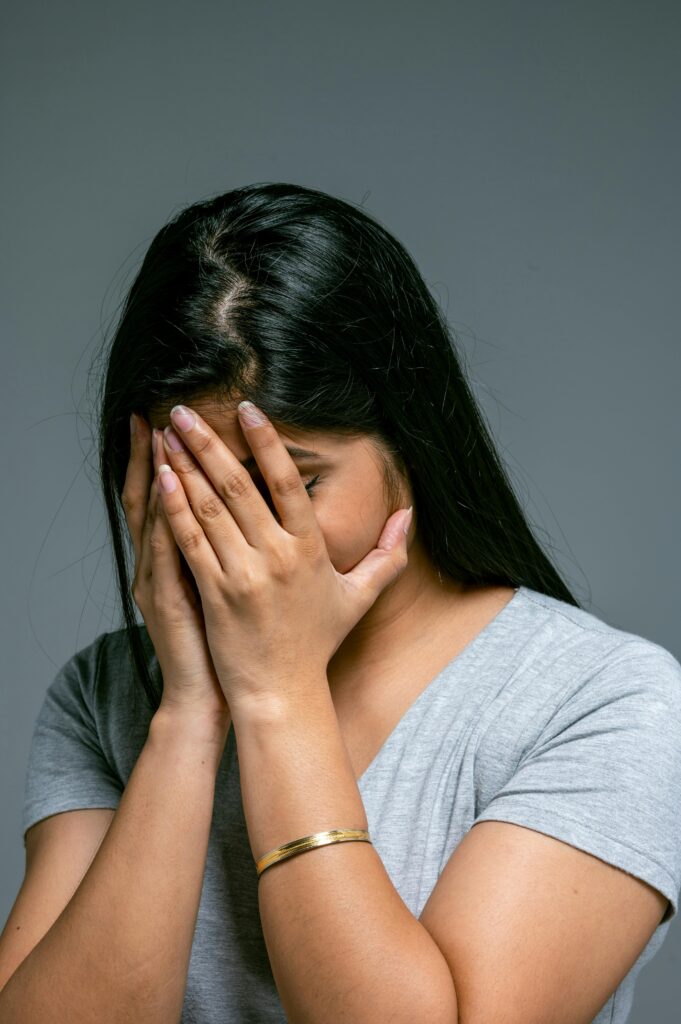
This blog article aims to create awareness on the topic of motherhood burn out in India. Popular culture such as on television and social media has painted an idealistic picture of motherhood – a woman who flawlessly excels at managing her children, career, house and has a thriving social life. Women are held to an impossible standard and expectation surrounding motherhood and what it means to be a ‘good mother’. The long-term stress and overwhelm of being the primary caregiver to children. Along with being under supported often leads to women feeling jaded and burnout.
What is motherhood burnout?

Herbert Freudenberger, an American psychologist, coin the term burnout. According to Frontiersin “Burnout is a psychological syndrome characterized by emotional exhaustion, feelings of cynicism and reduced personal accomplishment”. Burnout was first studied by the psychologist Herbert Freudenberger in context to employee burnout from long term stressful work.
Motherhood burn is a term typically used to explain symptoms in women who are experiencing burnout from parenting. Motherhood burnout is defined by four dimensions: emotional exhaustion, emotional distancing, feeling fed-up, and contrast in parental self.
What does motherhood burnout look like?
- Exhaustion from parenting. This is the first symptom of burn out. The mother feels emotionally and physically drained, exhausted, and without energy.
- Feeling fed up and frustrated with your children. You feel like you are becoming a worse version of the parent you were before. This is characterized by contrast in parental self. You often feel your children are better off without you as their mother, you have a short fuse and despite yourself you get irritated and frustrated at your children’s demands and neediness.
- Emotional distancing is characterized by a decrease in the parent’s attention on the child/children, decreased parental involvement, and difficulties in showing affection/ bonding.
Factors that play a role in causing motherhood burnout:
- Unrealistic expectations surrounding motherhood: In todays technologically connected times, social media has played a huge role in creating a ‘highlighted reel’ on how motherhood should look and feel like. Curated feeds by influencers and friends with cute photos of themselves and their smiling happy children. Creates a unrealistic perception around motherhood which can be far from true.
The reality is that each individual will experience joys and challenges unique to their own life journey. Curated social media images creates a false perception that being a mother is the ultimate fulfilment in a woman’s life and that everyone is flawlessly managing motherhood. - Lack of help and emotional support: Lack of physical and emotional support in taking care of children takes a mental and physical toll on a woman. A scenario unique to Indian women is that despite being close to family/in laws often times because they do not understand your parenting values or do not want to cooperate with you in how you want to raise your children. This creates ego clashes in the family. Also adding to a the feelings of burnout.
- Looking after ageing parents / in laws. Stay at home mothers may end up taking on the additional burden of taking care of elderly parents and in laws.
- Financial Constrains: not having enough money or resources to hire additional help significantly increase the physical workload of a woman.
Motherhood burnout can also contribute to postpartum depression, a type of depression that occurs after the birth of a child and can lead to severe anxiety and panic attacks, intense anger, and changes in sleep or eating habits. When left unmanaged, burnout can have negative effects on you, your children, and your overall family dynamic.
Read More: Postpartum Depression: Will I ever feel okay again
Solutions to tackling motherhood burnout:
- Establish a routine for yourself and your children: taking care of and raising children is an all around the clock job. Establishing a consistent daily routine with your children helps create stability and structure into your days. Children feel secure and confident when they know what to expect each day. Having a consistent routine around key activities such as mealtimes and bedtime will reduce tantrums and meltdowns from children. Once everyone is in an established routine you will feel more in control of your time and your day.
- Enlist your spouse in shouldering household responsibilities and childcare: Times are changing are so are the definitions and roles in a marriage. Culturally in India well meaning nani, dadi’s and mothers often explicitly or inexplicitly send a message to new moms that they must do it all, with a smile. It is not healthy or even productive for one person to do all the household chores and childcare. Involving your spouse creates a deeper bond between yourself and your children. Couples therapy helps couples in navigating a shift in their previous roles of husband and wife to that of parents and how to redistribute roles and responsibilities between both partners.
3. Spend time with other people, form connections in real time: Emotional isolation that comes from spending time alone caring for children or elderly family members can worsen your feelings of stress and burnout. While it never is easy to make new friends or connections in adulthood it is always worth giving it a shot at trying to get to know your neighbors join mom support groups etc to fill your emotional cup with adult conversations.
4.Limit social media and late night doom scrolling: While social media has many positives, doom scrolling especially when done as revenge bedtime procrastination to take back time for yourself that you did not get during the day. In the short term, doom scrolling at night feels good and productive. However, scheduling down time for yourself and sleeping on time and getting adequate sleep will help you in the long run.
How therapy can help you with motherhood burnout

When you have tried all avenues to help yourself and you still find yourself stressed and feeling burnt out take that as a sign, for professional help. Therapy puts the focus back on you and gives you the professional guidance and dedicated time to help you figure out and identify your triggers, stress style, how to navigate through big life changes and help you identify the root causes of your motherhood burnout.
The founder of Serene Hour, Sherene Chaz is a psychologist and a twin mother. She is dedicated to helping women and moms on how to navigate the challenges of motherhood and offering them a trauma inclusive, safe space via therapy.
FREQUENTLY ASKED QUESTIONS
Question: Can dad’s experience burnout?
Answer: Raising children is a tough transition in the lives of new parents. Fathers are also at risk of experiencing parental burnout. Due to high cost of living, the pressure to financially provide for the family and lack of support. Fathers also can experience fatigue and burnout. Serene Hour is a trauma informed safe space for parents to avail therapy for parental burnout.
Question: Are post-partum depression and motherhood burn out the same?
Answer: People who suffer from burnout do share similar symptoms to that of depression. Some of the burnout symptoms appear to resemble depression; as it is characterized by anhedonia, the loss of interest or pleasure in once enjoyed activities, depressed mood, fatigue or loss of energy, impaired concentration, and feelings of worthlessness, decreased or increased appetite, sleep problems (hypersomnia or insomnia) and suicidal ideation.